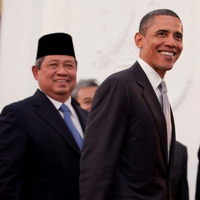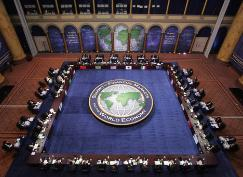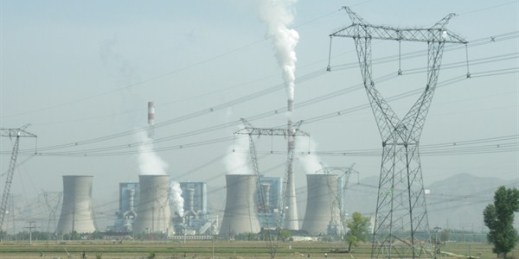South Korea and the United States recently began a review of their bilateral nuclear energy agreement that expires in 2014. In an e-mail interview, Mark Hibbs, senior associate in the Carnegie Endowment for International Peace’s Nuclear Policy Program, discussed U.S.-South Korea civil-nuclear cooperation. WPR: What is the status quo in terms of U.S.-South Korean nuclear cooperation? Mark Hibbs: On the basis of a bilateral nuclear cooperation agreement from 1974, South Korea has built 14 of its 20 nuclear-power reactors with the help of U.S. industry and government agencies. The agreement permitted U.S. firms to supply technology, equipment and fuel for […]
East Asia Archive
Free Newsletter

On the surface, the NATO summit meeting in Lisbon, the North Korean artillery barrage against Yeonpyeong island, and the unmasking of the “fake” Mullah Akhtar Muhammad Mansour in Afghanistan would appear to be separate and unconnected events. But there is a common theme that ties these three news stories together. In his WPR column column on Monday, Thomas P.M. Barnett summed up the problem: The United States cannot “close the gaps” in the global security system. The end of the Cold War and the rise of new power centers around the world have not led to any appreciable shift in […]
As the current political narrative has it, President Barack Obama has been weakened by the midterm elections. So it should come as no surprise that his failure to sell Congress’ version of the U.S.-South Korea free trade agreement is a reflection of Obama’s weakened position, rather than, say, a reflection of Congress’ unrealistic expectations of what trade concessions other countries are willing to make in the current dismal economic environment. The same latent theme runs through much of the coverage of Obama’s tepid performance at the G-20 summit, although it is not as pronounced. So be it, narratives are often […]

It is unfortunate that President Barack Obama’s visit to Asia as well as the G-20 summit in Seoul took place in the aftermath of what he himself termed a “shellacking” in the midterm elections — an electoral rebuke delivered in part because Americans believe that the Democrats have not delivered on their promises of economic security. The trip could have been used to project the message that the United States is prepared to take the lead in the global community of nations. As Secretary of State Clinton put it back in September, “[T]he United States can, must and will lead […]

South Korea is set to host the G-20 leaders’ summit in Seoul on Thursday and Friday, the fifth such gathering since the onset of the global financial crisis. While past summits have focused on coordinated stimulus, global financial regulation and reform of the major international financial institutions, this week’s meeting is gearing up to be known as the “trade and currency summit.” It is also likely to be more tense and contentious than any of its predecessors, whether leaders admit it publicly or not. This is especially true when it comes to the ongoing economic prize-fight between the G-20’s two […]

The rapid economic growth of the People’s Republic of China has fueled a demand for energy that has now outstripped domestic sources of supply. As a result, China can no longer sustain its economic expansion without importing massive quantities of energy. To compensate for the projected underproduction of domestic energy sources as well as further increases in anticipated energy consumption, the Chinese government has pursued a subtle energy security strategy that includes three major components: first, reforming the domestic energy sector to maximize production and attract foreign direct investment; second, expanding China’s energy mix to reduce the nation’s dependency on […]
